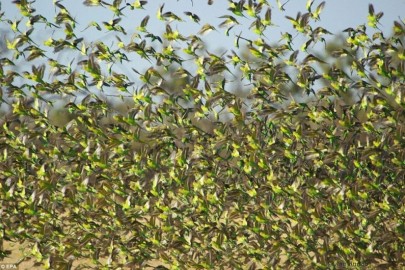Kingsley Amis rated A.E. Housman as one of the greatest English poets. Stephen reveals why…
The two great themes of A. E. Housman’s poetry are love (unrequited, or requited and lost) and death (or, put differently, the fleeting nature of life). These subjects are addressed in verse that some may find “old-fashioned” or “quaint.” And it is certainly true that, even though his final collection was published in 1922 (the year in which Eliot’s The Waste Land was published), Housman was not a “Modernist.”
For my money, Kingsley Amis appropriately responds to quibbles about Housman’s poetry:
Of course I think it ungrateful and wrong that Housman should never have been conventionally admitted as a great English poet, one of the greatest since Arnold, but not so surprising when you consider some of the people who have been so admitted. What are the objections to him? . . . His themes are restricted: I started to make a list of them until it occurred to me that the same objection would exclude from the canon Milton, Herbert, Pope, Wordsworth, Keats. . . . He turns his back on the modern world: next question. He made no technical innovations: get out of my sight.
Kingsley Amis, The Amis Anthology: A Personal Choice of English Verse (1988), pages 331-332.
The theme of the following three poems is love, and they are tied together by similar imagery. The first poem was published while Housman was alive. The other two were published posthumously. As is the case with most of Housman’s poems, they are untitled.
The half-moon westers low, my love,
And the wind brings up the rain;
And wide apart lie we, my love,
And seas between the twain.I know not if it rains, my love,
In the land where you do lie;
And oh, so sound you sleep, my love,
You know no more than I.A. E. Housman, Poem XXVI, Last Poems (1922).
Lest one think that this is technically a “simple” poem, one should consider Housman’s use of assonance, consonance, and alliteration both within a given line, and across lines. The fact that the moon is a “half-moon” is not a matter of happenstance. And consider this as well: is the absent lover in another land? Or is he or she dead? Or, just possibly, is he or she now sleeping in the same bed as the speaker of the poem?
The following two poems are expanded versions (not strictly translations) by Housman of a poem by Sappho.
The weeping Pleiads wester,
And the moon is under seas;
From bourn to bourn of midnight
Far sighs the rainy breeze:It sighs from a lost country
To a land I have not known;
The weeping Pleiads wester,
And I lie down alone.A. E. Housman, Poem X, More Poems (1936).
“Bourn” in this instance probably means “a bound, a limit” or, perhaps, “a boundary” (OED). According to Bulfinch, “the Pleiads were daughters of Atlas, and nymphs of Diana’s train. One day Orion saw them and became enamoured and pursued them. In their distress they prayed to the gods to change their form, and Jupiter in pity turned them into pigeons, and then made them a constellation in the sky.” Thomas Bulfinch, The Age of Fable (1855).
The rainy Pleiads wester,
Orion plunges prone,
The stroke of midnight ceases,
And I lie down alone.The rainy Pleiads wester
And seek beyond the sea
The head that I shall dream of,
And ’twill not dream of me.Ibid, Poem XI.












“His themes are restricted” – a polite way of saying he banged on about the loss of childhood/innocence just a bit – ‘A Shropshire Lad’ contains many delightful poems but the combined effect of all 63 in one volume is somewhat stultifying.
I love the first poem here, very romantic (or melancholy)
Worm: yes, I’m not certain that I’d be up to reading A Shropshire Lad straight through. On the other hand, poets (I say this off the top of my head, without doing a full mental inventory) have a sore tooth (or a few sore teeth) that they tend to worry. As do the rest of us.
Thus, for instance, as one sets out to read the 947 poems in Hardy’s Collected Poems, one can expect to see a few themes rehearsed in various guises. Conversing ghosts abound. (I say this as one who, in my previous post here, identified Hardy as my favorite poet.) And as for, say, Larkin and R. S. Thomas . . . Perhaps only Shakespeare is an entire universe.
As you rightly suggest, it is the individual poems that count. I agree with you that “The half-moon westers low, my love” is one of those that is indeed hard to forget.
Thank you very much for the thoughts.